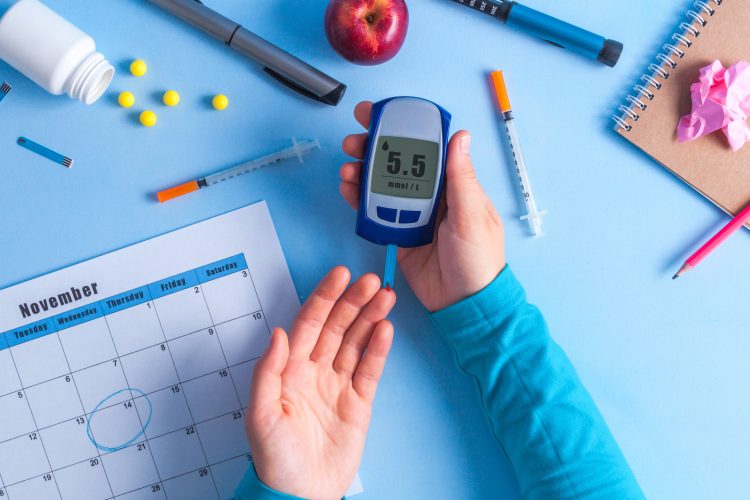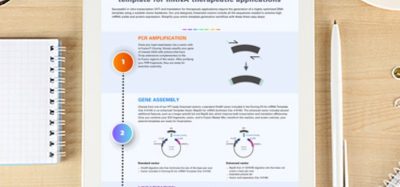Next-gen biotech: rBIO’s approach to affordable insulin solutions
Posted: 4 April 2025 | Drug Target Review | No comments yet
rBIO is transforming the biosimilar insulin market with a novel biomanufacturing platform designed to reduce production costs while maintaining high-quality standards. CEO Cameron Owen shares how their approach is shaping drug discovery and improving patient access to life-saving treatments.


Co-founded and led by CEO Cameron Owen, rBio is a biotech company making a significant impact in the biosimilar insulin market. By combining synthetic biology with advanced biomanufacturing techniques, rBio is set to reshape the production of these vital medications. With a commitment to making insulin biosimilars more affordable and accessible, rBio is addressing a critical need for patients across the globe.
In a recent interview, Owen shared insights into rBio’s technology, key milestones achieved, and their vision for the future of biosimilar development. He explained how rBio’s innovative approach can significantly improve patient access to life-saving treatments, especially in developing nations. In addition, the company is addressing key challenges such as scaling up production and maintaining consistent quality. This interview provides a glimpse at rBio’s potential to improve insulin production and enhance global health outcomes.
A new approach to insulin production
Insulin biosimilars are near-identical versions of branded insulin products, developed to provide the same safety, efficacy and quality at a lower cost. Unlike generic drugs, which are chemically identical to their reference products, biosimilars are derived from living cells and require extensive testing to demonstrate they have no clinically meaningful differences from the original biosynthetic product. This rigorous development process ensures they meet the same regulatory and therapeutic standards while offering a more cost-effective alternative.
With the global diabetes population rising and insulin prices remaining a barrier for many patients, biosimilars play a crucial role in improving access to treatment. In underserved regions, where affordability and availability are persistent challenges, these alternatives can help bridge the gap, ensuring more patients receive the life-saving medication they need. By increasing competition in the market, insulin biosimilars also have the potential to drive down overall costs, making diabetes care more sustainable for healthcare systems.
We believe that innovation in production methods can directly translate into greater affordability and accessibility for patients who depend on these life-saving drugs.
Recognising these challenges, rBIO has developed a novel biomanufacturing approach aimed at reducing production costs while maintaining the highest quality standards. Its platform technology is centred on enhancing protein yield in microbial expression systems, significantly improving efficiency compared to traditional manufacturing methods. “We estimate that our production costs would be up to 40 percent lower than those of our competitors,” Owen revealed, highlighting the potential for substantial savings for both healthcare systems and patients. “We believe that innovation in production methods can directly translate into greater affordability and accessibility for patients who depend on these life-saving drugs,” he explained.
While rBIO’s platform significantly reduces production costs, ensuring consistency at scale remains a critical challenge. Owen emphasised the importance of their rigorous preclinical validation process and their strong partnership with a contract development and manufacturing organisation (CDMO). “We’ve implemented real-time monitoring and optimisation into our manufacturing processes to ensure consistency across production runs,” he said, demonstrating their commitment to quality control.
This blend of cost reduction and quality assurance is essential for drug discovery, particularly in the development of biosimilars, as it ensures that new therapies are both affordable and reliable for patients worldwide. With the right balance of innovation and consistency, rBIO is positioning itself to reshape the insulin biosimilar market and improve global access to essential medications.
R-biolin: a significant milestone
A major milestone for rBIO is the successful completion of a first-in-animal study for its lead biosimilar, R-biolin. The study confirmed its bioequivalence to Novo Nordisk’s Novolin-R, a widely used human insulin that helps regulate blood sugar levels in people with diabetes. Designed to replicate naturally produced insulin, Novolin-R is available in various formulations to suit different treatment needs. Owen explained that this achievement lays the foundation for a more efficient approval process compared to entirely new drug entities. “By leveraging our efficient biomanufacturing platform, we aim to de-risk the development process for investors while accelerating our timeline to market,” he stated. With regulatory clarity, proven bioequivalence and a scalable production model, R-biolin is well-positioned as a strong contender in the biosimilar market.
By leveraging our efficient biomanufacturing platform, we aim to de-risk the development process for investors while accelerating our timeline to market.
This demonstrates how the drug discovery field is evolving to meet the growing demand for affordable and accessible treatments. By employing biomanufacturing technologies, rBIO is not only advancing the production of insulin but also contributing to a broader shift in the pharmaceutical industry – one that seeks to increase the availability of life-saving medications through cost-effective and efficient solutions. This breakthrough reflects the ongoing push in drug discovery to improve healthcare accessibility and create more sustainable models for drug development and distribution.
The biosimilar landscape
rBIO aims to be a driving force in the evolution of the biosimilar market. “rBIO is positioned at the intersection of synthetic biology and biopharmaceuticals,” Owen stated, emphasising how their work aligns with the broader industry shift towards advanced biomanufacturing. By leveraging innovative production methods, the company seeks to expand patient access to essential treatments. While insulin remains its primary focus, rBIO sees even greater potential in applying its platform to other complex biologics. “Beyond insulin, our platform has the potential to improve the production of other complex biologics,” Owen suggested, hinting at the wider applications of their technology. Their approach has the potential to transform not just the biosimilar market but the broader landscape of biologic drug production.
Addressing the Levemir shortage
The discontinuation of Levemir by Novo Nordisk has created a significant gap in diabetes care, particularly for patients who rely on its longer-acting basal insulin. Owen emphasised that this has left many individuals – including pregnant women – searching for viable alternatives. “This discontinuation has left many patients, particularly pregnant women, children and athletes who require a longer-acting basal insulin, searching for alternatives,” he explained. rBIO sees this as an opportunity to step in with a cost-effective biosimilar solution, ensuring continued access to this essential medication. By focusing on replacing critical medications that are being phased out, rBIO highlights its commitment to improving patient outcomes and ensuring continuity of care.
Ensuring reliability and reproducibility
Reliability and reproducibility are at the core of rBIO’s approach to biosimilar insulin production. Owen stressed the company’s commitment to rigorous product characterisation and quality control. By leveraging advanced analytical methods, rBIO guarantees that each batch maintains the same safety, efficacy and quality as the original insulin product. “Our partnership with our CDMO has been instrumental in accelerating our preclinical validation,” he said.
Looking ahead, rBIO is focused on preparing for first-in-human trials, with further scaling of its manufacturing operations on the horizon. To support this next stage of development, the company is actively seeking funding and strategic partnerships, ensuring it is well-positioned to bring its biosimilars to market efficiently and at scale.
Meet Cameron Owen


With a bachelor’s degree in microbiology and a master’s degree in healthcare management from Johns Hopkins University, Cameron brings a wealth of scientific and leadership experience to rBIO. He is well-versed in a range of genetic, chemistry and laboratory techniques, and he has a proven track record of success in the biopharmaceutical industry.
Cameron is committed to leveraging rBIO’s innovative technology to address unmet medical needs and improve the lives of patients around the world. He believes that everyone deserves access to life-saving medications, and he is dedicated to making that vision a reality.
Related topics
Biopharmaceuticals, Biosimilar, Drug Discovery, Drug Discovery Processes, Protein Expression, Synthetic Biology
Related conditions
Diabetes
Related organisations
rBIO
Related people
Cameron Owen (CEO of rBIO)








